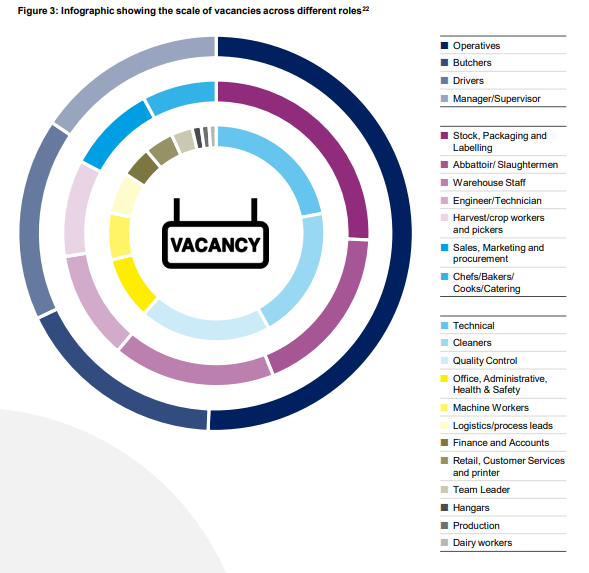Topics: food & beverage, global talent shortage, Talent Sourcing
2023 Outlook: Preparing for the Big Food & Beverage Talent Shortage
Posted on November 08, 2022
Written By
Siddharth Sujan

Despite being one of the fastest-growing and most competitive industries in the UK, the Food & Beverage (F&B) sector continues to reel under a chronic shortage of people & talent. In addition to dealing with major financial setbacks, manufacturers are left with no option but to cut back on production, compromise on product quality and increase pressure on staff.
The magnitude of this talent shortage can be adjudged from the fact that more than £60m worth of food has been wasted in the first half of 2022 alone, just because there aren’t enough workers to collect crops.

Since the F&B talent shortage doesn’t seem to be dying down anytime soon, it has become imperative for organizations to go back to the drawing board, think outside the box and come up with strategies that help them attract, hire & retain talent to ensure business continuity.
Strategies to Tackle the Food & Beverage Industry Talent War
INVESTING IN THE PEOPLE OF TOMORROW
One of the most significant implications of the Great Resignation has been the mass exit of a skilled and experienced workforce from the F&B sector. To make things worse, the industry is also battling the problem of an aging workforce with almost a third of its people set to reach retirement age by 2033-35.
Amidst such a tricky landscape, it has become imperative for businesses to start investing in a young workforce and build an ecosystem that aligns with their expectations. Embracing technology is one of the easiest ways to change the perception around manufacturing careers, laying the foundation stones for a smart culture and attracting qualified professionals – all while increasing operational productivity.
RELATED CASE STUDY: Do you know that QX worked with a leading wine & spirits producers to automate & optimize the accounts payable process, delivering 60% cost savings? Read the case study to find out how.
MOVE BEYOND ONE-SIZE-FITS-ALL
For the longest time, businesses across industries have followed archaic retention measures – a strategy that is most likely to fail in the post-COVID work environment where locations do not really limit roles.
To start with, businesses will have to go out of their way to expand their horizons and build a diverse and more inclusive workforce. Next, it is crucial to realize the specific needs & expectations of diverse teams and think beyond higher compensation to offer benefits & reward programs that are hyper-tailored to employees. Encouraging open communication on a regular basis is one of the easiest ways to identify areas for improvement and make amends to existing reward programs.
PRIORITIZE HEALTH & SAFETY
For an industry that is prone to health & safety hazards, prioritizing the overall well-being of employees can prove to be the game-changer when it comes to employee retention. As food & beverage professionals now have many more employment options, measures such as fatigue management programs and safety training can provide peace of mind to the workforce.
Businesses will also be expected to involve people across roles in the decision-making process to help identify & overcome potential threats. Hiring dedicated risk managers and implementing a robust oversight process helps pinpoint safety challenges early on and build a sense of trust amongst employees.
EMBRACING & ENCOURAGING FLEXIBILITY
In the wake of the pandemic and a subsequent global work environment, F&B professionals expect a higher deal of flexibility from their employers, and organizations that cater to these demands are more likely to gain an edge over the competition.
Forward-thinking businesses, in fact, are going above & beyond in terms of riding the wave of flexibility. In addition to offering remote working opportunities to in-house employees, many leading manufacturers are also setting up remote teams to address talent shortage issues. As a result, companies are not only able to leverage a global workforce of qualified professionals, but also reduce & eliminate additional costs involved in hiring & retaining staff.
QX Global Group is a global consulting, technology and BPM company offering end-to-end business transformation solutions. We have worked with some of the biggest food & beverage manufacturers in the UK to set up shared service and GBS centers. Through our solutions, our clients have been able to set up highly efficient back-office teams that are capable of growing with their business, identify & implement latest technology and control operational costs.
Connect with our transformation experts to learn more about our service offerings and understand how we can help you address talent shortage issues.
Originally published Nov 08, 2022 06:11:28, updated Nov 08 2022
Topics: food & beverage, global talent shortage, Talent Sourcing








